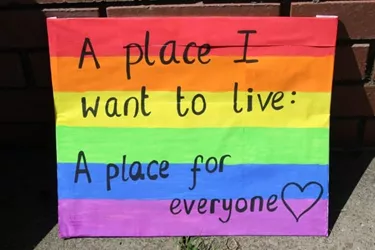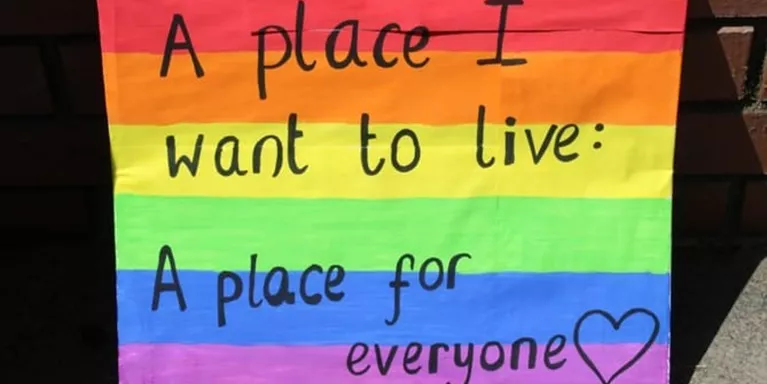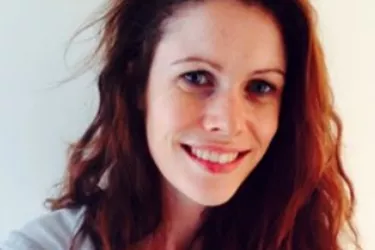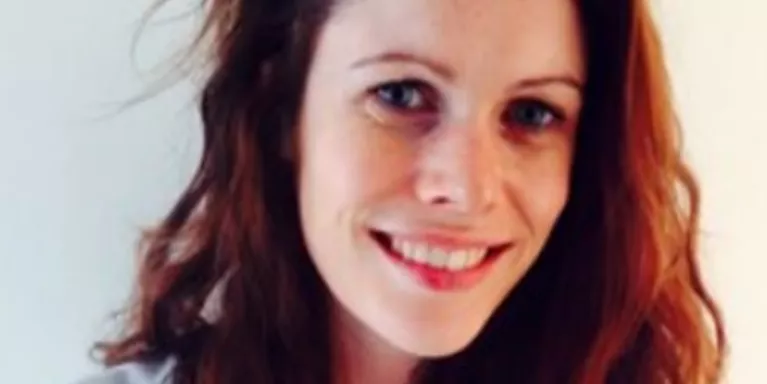When you're trans, having a community to turn to is incredibly reassuring
Scarlett blogs about the support she received during a tough year when she was completing a degree during the coronavirus pandemic and first publicly identified as trans.
Last year I came out as trans, the pandemic started and I finished my degree in computer science.
It’s safe to say I remember 2020 pretty well.
We were all sent home, as they couldn’t have students at university during summer term. That sucked.
I was stuck with a family that didn’t accept me for who I was and were having troubles of their own.
On top of that, I had exams coming up that determined whether or not I could continue to a master’s. It was too much to process.
Struggling through exams with ADHD
None of us were told enough about what kind of safety nets were in place when the exams started. It was a mess all the way through.
I ended up doing all my exams, got an extension on my year’s project and got (re-)diagnosed with ADHD, and told the university about everything that I’d been struggling with.
I was incredibly nervous as it felt as if my entire future was riding on me getting a 2:1 - with my master’s or any chance of getting a grad job depending on it.
I dreaded clicking on the link for the results. But click I did.
“I reached out to the places I thought could help me – the university careers service, and the LGBT soc at uni.”
I didn’t get a 2:1. It was incredibly rough.
I could not stop thinking about the prospect of having to stay at home forever and suddenly not being a student.
I felt betrayed by the university, which had ignored the things I told them and only accommodated the mild seizure I had the morning of one of the exams.
They knew what I was going through and I felt like they left me out at sea.
They knew about my self-harm the year before, and that my GP had told me to not do those exams. They knew that my ability to do exams was going to be impacted by being at home, and they didn’t account for it.
It felt like they just didn’t care.
I reached out to the places I thought could help me – the university careers service, the counselling service, the LGBT soc at uni of which I was a committee member, and basically anyone that would lend me an ear.
They were all incredibly helpful.
“I started turning up to Gendered Intelligence. They’re a charity that help out young trans people.”
The careers service helped me out with my CV and advised what kind of jobs/opportunities there were around; the counselling service helped me cope emotionally with it all, just like they did while I was a student; and the LGBT soc got me in touch with people who’d been in a similar position to me, and gave me the hope that I could move back to Oxford and have the community that I’d found.

Finding a safe space to live
And it worked!
I got a job making games, and a safe space to live back in Oxford about six weeks after suddenly leaving uni. It’s kind of full circle really. Making games is what got me into programming to start with and motivated me to study computer science at uni.
I remember meeting my first trans friend while at uni – they helped me come out of the closet and they lived in Abingdon. Now I live there as well.
I started turning up to Gendered Intelligence again and they’ve been my main group during the pandemic. They’re officially a charity that help out young trans people, but to be honest, they’re more of a community.
They’ve checked up on me when I’ve needed it and helped with one-to-ones where I can voice all the things that I need to get off my chest.
“I’m glad I reached out to the people I did when I did. I don’t think I would have made it without them.”
Also just having a community to turn to that is always ready to listen is incredibly reassuring. They were there when I needed them.
Moving out of home was a weight off my shoulders. I’m glad to be here and I actually think I’m in a better spot now than I would have been if I was still at uni.
I’m glad I reached out to the people I did when I did. I don’t think I would have made it without them.


Information and support
When you’re living with a mental health problem, or supporting someone who is, having access to the right information - about a condition, treatment options, or practical issues - is vital. Visit our information pages to find out more.
Share your story with others
Blogs and stories can show that people with mental health problems are cared about, understood and listened to. We can use it to challenge the status quo and change attitudes.

















